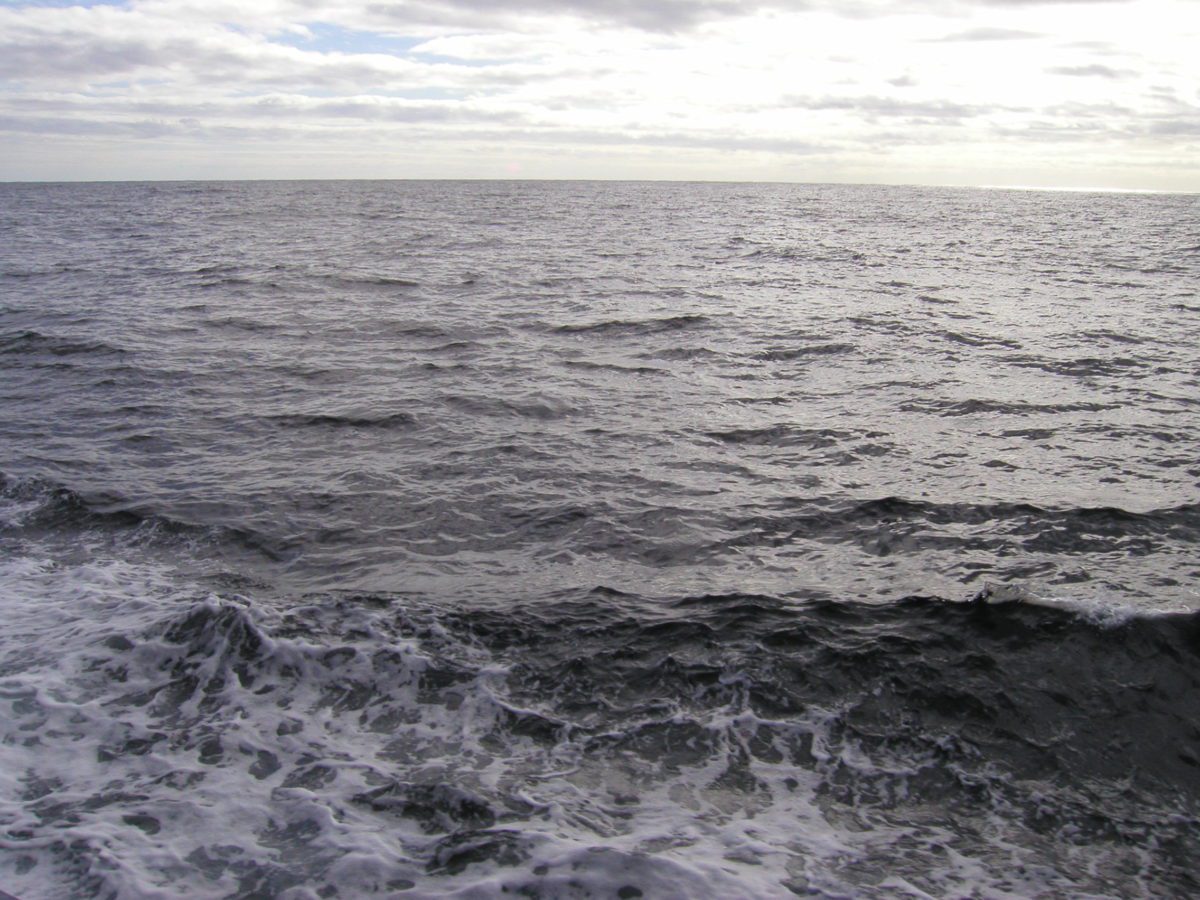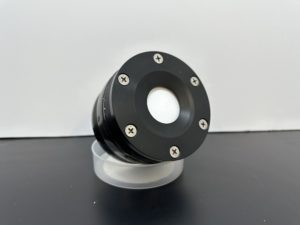Woods Hole Oceanographic Institution working with Ocean Discovery League on next generation deep ocean sensor system
 (Photo by: Tatiana Rykova, ©Woods Hole Oceanographic Institution)
(Photo by: Tatiana Rykova, ©Woods Hole Oceanographic Institution) June 27, 2024
Group received $1.2MM NOAA grant, one of the largest single investments in technology targeting the deep sea
Woods Hole, Mass. (June 27, 2024) – Woods Hole Oceanographic Institution (WHOI) is part of a global program to improve ocean observing capabilities, which are critical for helping understand ocean, coastal, and marine environments. Ocean Discovery League (ODL)—led by oceanographer and National Geographic deep-sea explorer Dr. Katy Croff Bell—has received a $1.2 million ocean technology transition grant from NOAA and the Integrated Ocean Observing System (IOOS) for the development of its next-generation deep ocean sensor and camera system. This award is one of the largest single investments to date in easy-to-use, low-cost technology specifically targeting the deep sea.
The IOOS Ocean Technology Transition program sponsors the transition of emerging marine observing technologies to operational mode.
Anna Michel, Associate Scientist at WHOI and Chief Scientist of the National Deep Submergence Facility, will lead the WHOI team that will adapt their CO2/O2 sensor for use as a module for the Deep Ocean Research & Imaging System (DORIS).
"We are proud to play a role in this global project," said Michel. "Continuing scientific exploration of the deep ocean is imperative, and broadening exploration access across the ocean community is an important initiative. The adaptation of WHOI's mini chemical sensor package for use with DORIS will play a role in developing accessible systems and advancing individual user mission objectives."

The multi-gas sensor has been developed by a team of engineers at WHOI as a low-cost approach for in situ ocean measurements. (Photo by: Beckett Colson, ©Woods Hole Oceanographic Institution)
As part of this award, ODL will develop the deep-diving, low-cost DORIS to lower the financial and technical barriers to deep-sea exploration and research. DORIS builds on previous modular systems developed by ODL and is a novel, customizable tool consisting of interchangeable sensing and operational modules that can be configured to meet the mission of individual projects. The high degree of flexibility and ease of use allows users to create a technological solution that meets their unique needs.
"We have seen a minuscule fraction of the deep seafloor," said Bell. "Only through scalable, innovative solutions like DORIS and expanding the community of global ocean explorers will we be able to make significant progress in characterizing this barely explored ecosystem."
The primary goal of this system is to reduce the reliance on technical expertise for operation and deployment. DORIS will aim to achieve an operational depth of 6,000 meters and include a suite of modules, including sensing modules (e.g., O2/CO2, CTD sensors) and operational modules (e.g., lighting). In 2020, Wayfinder—a prototype developed by ODL's predecessor, the Open Ocean Initiative at the MIT Media Lab—provided critical lessons in developing easy-to-use modular oceanographic systems.
The grant is in partnership with the Pacific Islands Ocean Observing System (PacIOOS), WHOI, and the University of Nebraska at Lincoln.
PacIOOS supports ocean users and stakeholders throughout the Pacific Islands by providing accurate and reliable coastal and ocean information, tools, and services that are easy to access and use. The partnership with PacIOOS will achieve maximum impact for historically under-served communities, and this grant will leverage their network of communities, regional liaisons, and data visualization platform to bolster community capacity. This grant will support training, user support, and workshops to help address knowledge gaps concerning ocean technology.
"The collaboration with Ocean Discovery League on this grant cuts to the heart of the PacIOOS mission, aiming to empower ocean users in the region through more accessible data and technology," said Dr. Jordan Watson, Deputy Director of PacIOOS. "This project seeks to provide new and accessible technology while also building capacity for communities without traditional participation in deep ocean science."
Dr. Dan Novy, an Assistant Professor at the University of Nebraska-Lincoln, is a transmedia experience designer and Imagineer who supervised the development of previous ODL systems. He will advise on the technical design and development of this project.
The broader impact of DORIS is placing the tools of ocean exploration directly into the hands of communities across the Pacific, providing them with the capacity to monitor a changing ocean in regions where climate resilience is the primary concern, and resources are scarce. DORIS will expand access to exploration technology and broaden participation for more equitable and efficient discovery, conservation, and management. Because of its modular and portable nature, it can enable communities to target specific areas of concern within their local environments.
NOAA and ODL also recently signed a formal agreement to collaborate to accelerate deep-ocean exploration by developing low-cost tools and technologies, such as deep-sea cameras, that give greater, more equitable access to the broader public and scientific communities to explore the deep ocean.
###
About Woods Hole Oceanographic Institution
Woods Hole Oceanographic Institution (WHOI) is a private, non-profit organization on Cape Cod, Massachusetts, dedicated to marine research, engineering, and higher education. Established in 1930, its mission is to understand the ocean and its interactions with the Earth as a whole, and to communicate an understanding of the ocean’s role in the changing global environment. WHOI’s pioneering discoveries stem from an ideal combination of science and engineering—one that has made it one of the most trusted and technically advanced leaders in fundamental and applied ocean research and exploration anywhere. WHOI is known for its multidisciplinary approach, superior ship operations, and unparalleled deep-sea robotics capabilities. We play a leading role in ocean observation and operate the most extensive suite of ocean data-gathering platforms in the world. Top scientists, engineers, and students collaborate on more than 800 concurrent projects worldwide—both above and below the waves—pushing the boundaries of knowledge to inform people and policies for a healthier planet. Learn more at whoi.edu.
About Ocean Discovery League
Founded by deep-sea explorer Dr. Katy Croff Bell, Ocean Discovery League's mission is to accelerate deep-ocean exploration by developing accessible systems to broaden the community of those who explore and understand the deep sea. ODL is developing a strategic approach to expand the area of the seafloor that is explored, mapped, and characterized while reducing expenses by creating lower-cost, easier-to-use tools, and technology. These actions, along with a more targeted approach to selecting exploration locations, will expand deep ocean exploration to a broader community of explorers, focusing on those historically excluded from deep-sea research and exploration. Follow us online at www.oceandiscoveryleague.org and on social media as @OceanDiscLeague.
